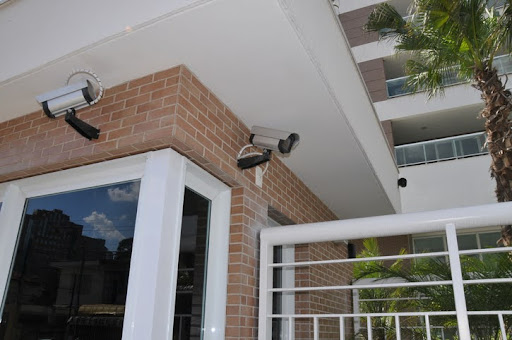
Negligent Security Lawyer for Apartment Complex Cases in Georgia & Washington, D.C.

Apartment complexes should be places where tenants feel secure and protected. However, when property owners and managers fail to provide adequate security, residents and visitors can become victims of preventable crimes such as assaults, robberies, or worse. In these cases, holding the responsible parties accountable requires the expertise of a skilled negligent security lawyer. Seay Felton LLC Trial Lawyers specializes in representing victims of negligent security at apartment complexes throughout Georgia and Washington, D.C.
What Is Apartment Complex Negligent Security?
Negligent security at apartment complexes occurs when property owners, managers, or landlords fail to implement or maintain reasonable safety measures, putting tenants and guests at risk. This negligence often involves:
- Broken locks on doors or gates
- Poor lighting in parking areas, stairwells, or hallways
- Lack of security cameras or surveillance systems
- Failure to employ trained security personnel
- Neglecting to notify residents of nearby criminal activity
These security failures can create an environment where criminal activity thrives, making property owners liable for any resulting harm. If you’ve been injured due to such negligence, a negligent security lawyer can help you pursue compensation for your losses.
Legal Responsibilities of Apartment Complex Owners
Property owners have a legal duty to provide reasonable security for their tenants and visitors. This duty is especially critical in areas known for criminal activity. Reasonable measures include maintaining secure entry points, installing adequate lighting, and regularly inspecting safety equipment like locks and cameras.
In Georgia, under O.C.G.A. §51-3-1, property owners must exercise “ordinary care” to keep their premises safe. Similarly, Washington, D.C. law holds property owners accountable if they fail to take reasonable precautions to protect visitors and residents. If an apartment complex’s negligence leads to a criminal act, the victim may be entitled to financial compensation.
A negligence lawyer from Seay Felton can help establish that the property owner breached their duty of care and that this breach directly caused your injuries.
Common Examples of Negligent Security in Apartment Complexes
Negligent security in apartment complexes can take many forms. Common examples include:
- Inadequate Lighting: Dimly lit areas in parking lots, stairwells, or hallways can provide cover for criminal activity.
- Broken or Unsecured Locks: Broken locks on doors, gates, or windows allow unauthorized individuals easy access to the property.
- Lack of Security Cameras: A lack of surveillance equipment makes it easier for crimes to occur undetected and uninvestigated.
- Absent or Untrained Security Staff: Having no security personnel or improperly trained staff can lead to an ineffective response during emergencies.
- Failure to Address Known Risks: If a property owner is aware of prior crimes or security issues but takes no action to address them, this inaction can be considered negligent.
Each of these failures can result in serious harm to residents and visitors. If you’ve been a victim of such negligence, consulting with an experienced negligent security attorney is crucial.
Proving Liability in Apartment Complex Negligent Security Cases
To hold an apartment complex owner accountable, you must prove the following elements:
- Duty of Care: The property owner owed you a duty to provide reasonable security measures.
- Breach of Duty: The owner failed to meet this duty by neglecting necessary security precautions.
- Causation: The lack of security measures directly contributed to your injuries or harm.
- Damages: You suffered measurable losses, such as medical expenses, lost wages, or emotional distress.
An experienced negligent security lawyer will gather evidence such as maintenance records, security footage, police reports, and witness statements to build a strong case on your behalf.
Compensation for Victims of Apartment Negligent Security

Victims of negligent security at apartment complexes may be entitled to compensation for:
- Medical Expenses: Including hospital bills, rehabilitation, medications, and ongoing care needs for recovery.
- Lost Wages: If your injuries prevented you from working temporarily or permanently, you may recover compensation for lost income and future earning potential.
- Pain and Suffering: Emotional distress, anxiety, trauma, and mental anguish resulting from the incident are often considered in your compensation claim.
- Property Damage: Reimbursement for stolen or damaged personal belongings during the crime.
- Wrongful Death: Compensation in cases of a loved one's passing may include funeral expenses, loss of companionship, and final medical costs.
Additional damages may be available depending on your case’s unique circumstances. The value of your claim hinges on factors such as the severity of your injuries, the extent of your losses, and the apartment complex’s negligence. A Seay Felton negligence lawyer can thoroughly assess your case and fight to secure maximum compensation on your behalf.
Why Choose Seay Felton LLC Trial Lawyers?
At Seay Felton, we have extensive experience representing clients in complex negligent security cases. Our firm understands the challenges victims face and is dedicated to holding property owners accountable for their negligence. Here’s why you should choose us:
- Proven Results: We have a track record of securing favorable settlements and verdicts for our clients.
- Focused Expertise: Our team specializes in negligent security and premises liability cases.
- Personalized Service: We take the time to understand your unique situation and develop a tailored legal strategy.
- Contingency Fee: You don’t pay unless we win your case.
If you’ve been harmed due to negligent security at an apartment complex, a Seay Felton negligence attorney can help you navigate the legal process and secure the justice you deserve. Contact us today to get started on your case.
Areas We Serve
Seay Felton LLC Trial Lawyers proudly serve clients in:
- Atlanta, GA
- Macon, GA
- Savannah, GA
- Warner Robins, GA
- Washington, D.C.
If you or a loved one has been injured due to negligent security, contact us today for a free consultation.
Contact a Negligent Security Lawyer Today
Don’t let negligent apartment complex owners go unaccountable for their failures. If you’ve been the victim of a crime due to inadequate security measures, contact Seay Felton LLC Trial Lawyers today. Our experienced negligent security attorneys will thoroughly investigate your case, gather essential evidence, and fight aggressively to ensure you receive the compensation you deserve. If you need an apartment negligent security lawyer, we are here to assist. Call now or fill out our online form to schedule a free consultation and take the first step toward justice.
Schedule a Free consultation
Contact Seay/Felton
"*" indicates required fields
